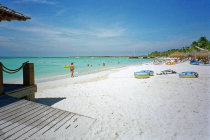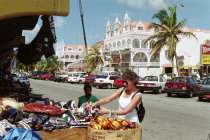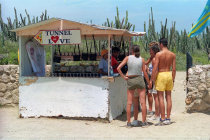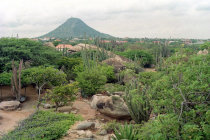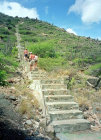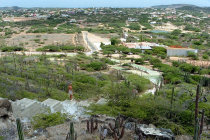Aruba became a constituent country in the Kingdom of the Netherlands in 1996, thanks to the relentless efforts of Betico Croes,
the Libertador di Aruba. Initially the country planned for full independence but this ideal has been postponed indefinitely.
Arawak
people left their petroglyphs in the Ayo Rocks, indicating that by 2000 BC humans already lived on the island.
The Dutch West Indies
Company had the local Arawak and conscripts farm the land and raise livestock to feed the many slaves on Curacao.
In the 19th century
Aruba saw its own gold rush and ruins of old gold mills can still be found at Balashi and Bushiribana.
Aruba has strong historic
connections with Venezuela and Colombia, dating back to the fight for independence from Spain.
In the 20th century refineries to processVenezuelan
oil were built and brought wealth to the community.
Nowadays Aruba's main source of income is tourism, mainly from the USA. Tourists
are drawn to white sandy beaches like Eagle Beach, that stretch for many kilometers in front of upscale hotels.
We visited Aruba
several times between1995 and 2003.
